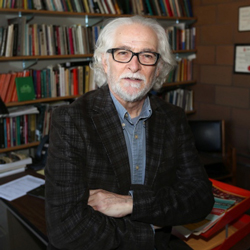Posts by Bill Carroll

About Bill Carroll
Bill Carroll teaches Sociology at the University of Victoria, and served as founding director of UVic’s Program in Social Justice Studies from 2008 to 2012. Since the mid-1980s, he has conducted collaborative research with social movement communities. His books include The Making of a Transnational Capitalist Class, Corporate Power and Canadian Capitalism Remaking Media (with Bob Hackett) and Organizing Dissent. Two 2016 books are Expose, Oppose, Propose: Alternative Policy Groups in the Struggle for Global Justice and A World to Win: Counter-Hegemony and Contemporary Social Movements (with Kanchan Sarker). His current project, “Mapping the power of the carbon-extractive corporate resource sector” (co-directed with Shannon Daub) traces modalities of corporate power within the global political economy, focusing particularly on carbon extraction in western Canada. More about Bill




